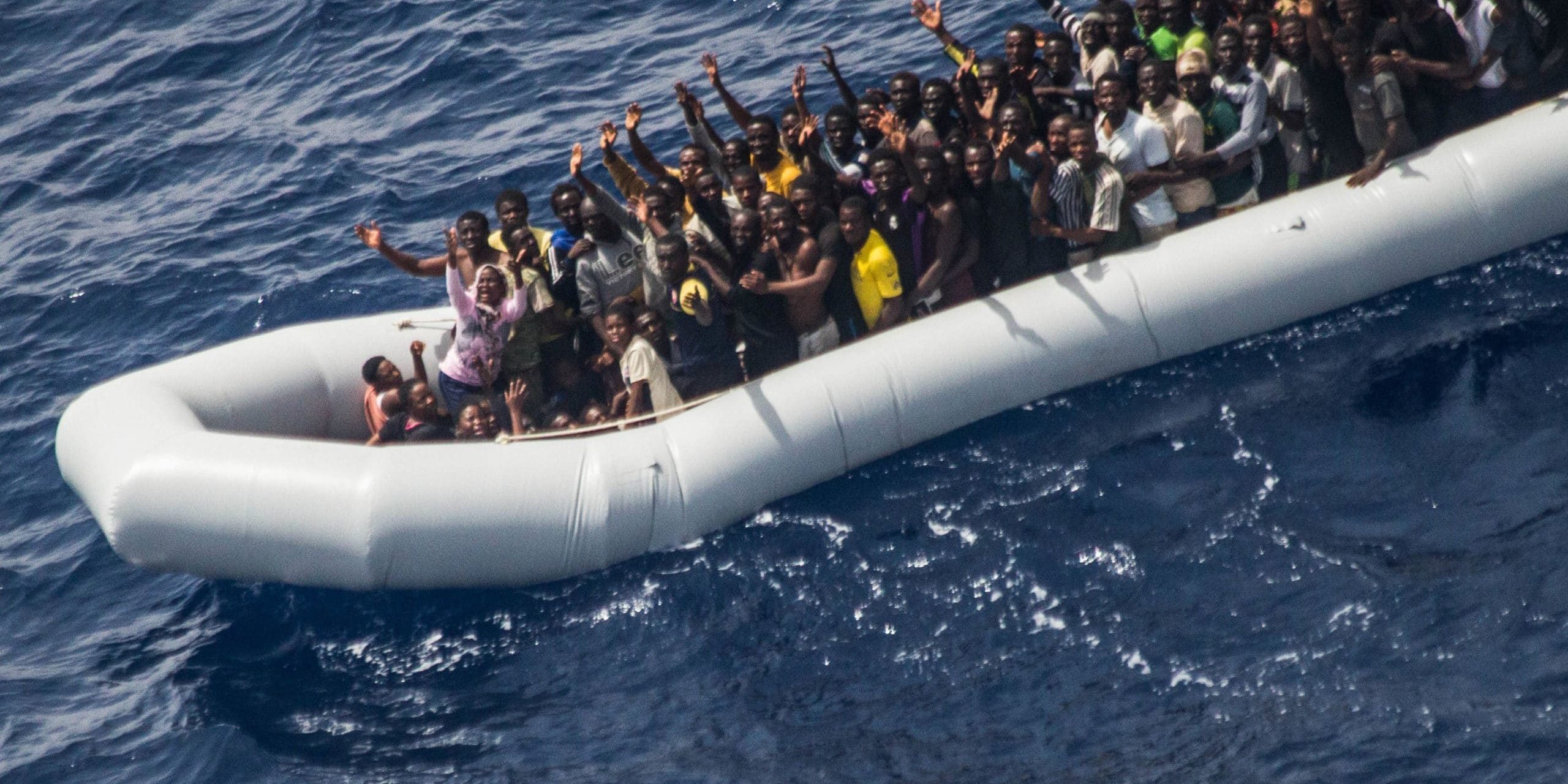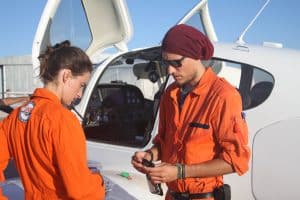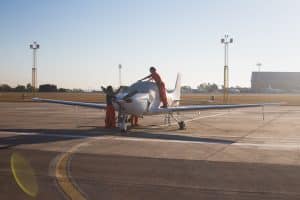One Day with the Mission Moonbird
written by Anja Franke
On the evening before take-off, pilot Manos hands me an orange full-body suit. “So that one can find us if we crash over the sea”, he said and I tried to forget my fear of heights. Now the four of us are sitting in the tiny cockpit of the Moonbird: Manos, Daniel, the flight-operator, Stef, the doctor, and me. We are wearing binoculars, headphones and my fear of heights has stayed behind on Malta – on this order of magnitude, flying almost feels like driving. From above, the water is flickering like scotch tape on blue background. All ships look tiny and there is not a single cloud on the horizon. Above all, the consistent sound of the engine of the small sporting plane that is taking us towards the Libyan coast where most boat accidents happen.
An hour later, we have arrived. Seen through the binoculars, the Mediterranean quickly shrinks from the size of an ocean to that of a large lake: How can it be that so many people are lost and forgotten here?
The Moonbird has been operating over the Mediterranean Sea since April this year. The civilian air-reconnaissance mission started as a joint project of Sea-Watch and Humanitarian Pilots Initiative (HPI) with financial support from the Protestant Church in Germany (EKD) in order to close another gap in civilian rescues at sea. It is responsible for coordinating rescue operations, it also functions as an independent observer documenting governments non-assistance for people in danger at Europe’s deadly maritime-border. Ever since it’s first operation on the Easter weekend a few months ago, when more than 100 people could be saved from drowning last minute, it has been operating on a regular basis.
Today is no exception. We traverse the area from East to West in two hours. We come across freighters and military ships as well as the smaller boats of the NGOs. The clear view allows us to make out the skyscrapers of Tripoli in the distance. The day starts quietly with a loop over the search-area to the East of the Libyan capital. With an ideal searching height of 1500 feet above sea level, our overalls quickly feel very warm. “I have a target at nine o’clock”, I suddenly hear through my headphones. Daniel has spotted a boat. An alert beeps loudly as Manos turns off the autopilot followed by a stab in the pit of the stomach, as the small aircraft goes into descent. Soon, we can see the overloaded rubber boat with the naked eye. The people are sitting and standing crammed together, most are not wearing life-vests. They are waving as we fly over them, with both arms stretched out wide. One person is holding a baby up into the air. We can see from above that the boat does not have a direction. They are drifting without any reference points for orientation and with no larger ships in the vicinity.
Seeing this I realize: the view from above that makes everything seem small and manageable is misleading. The rubber boats often escape the radars of the rescue ships as they lie very low on the water. Adding to the radar, the Sea-Watch 2 and the ships of other civilian sea-rescue organizations search the area with binoculars in order to spot the small boats on the horizon. This is where the Moonbird can help. Within only a short time, our crew can give an overview: How many rubber boats are out there? Where are they? Are they damaged? Are the people wearing life-vests? We can spot boats earlier and prioritize sinking boats. We can keep a clear overview when it gets lost in the haste of rescue operations.
What the Moonbird and the crew cannot do is intervene directly. They have repeatedly been witness to people on sinking boats for whom help came too late or to refoulements to Libya in violation of human rights. Daniel emphasizes: “We are also here to create political pressure. The EU could provide sufficient rescue resources if it wanted to. As long as it does not, our presence underlines the importance of safe escape routes.”
Today, all goes well. While several NGO boats conduct the rescue operations for the boats sighted from above, our fuel gauge forces us to return to Malta. However, it is certain that the air reconnaissance mission will continue in the next days.
Translation from German: E. Schaumanns













